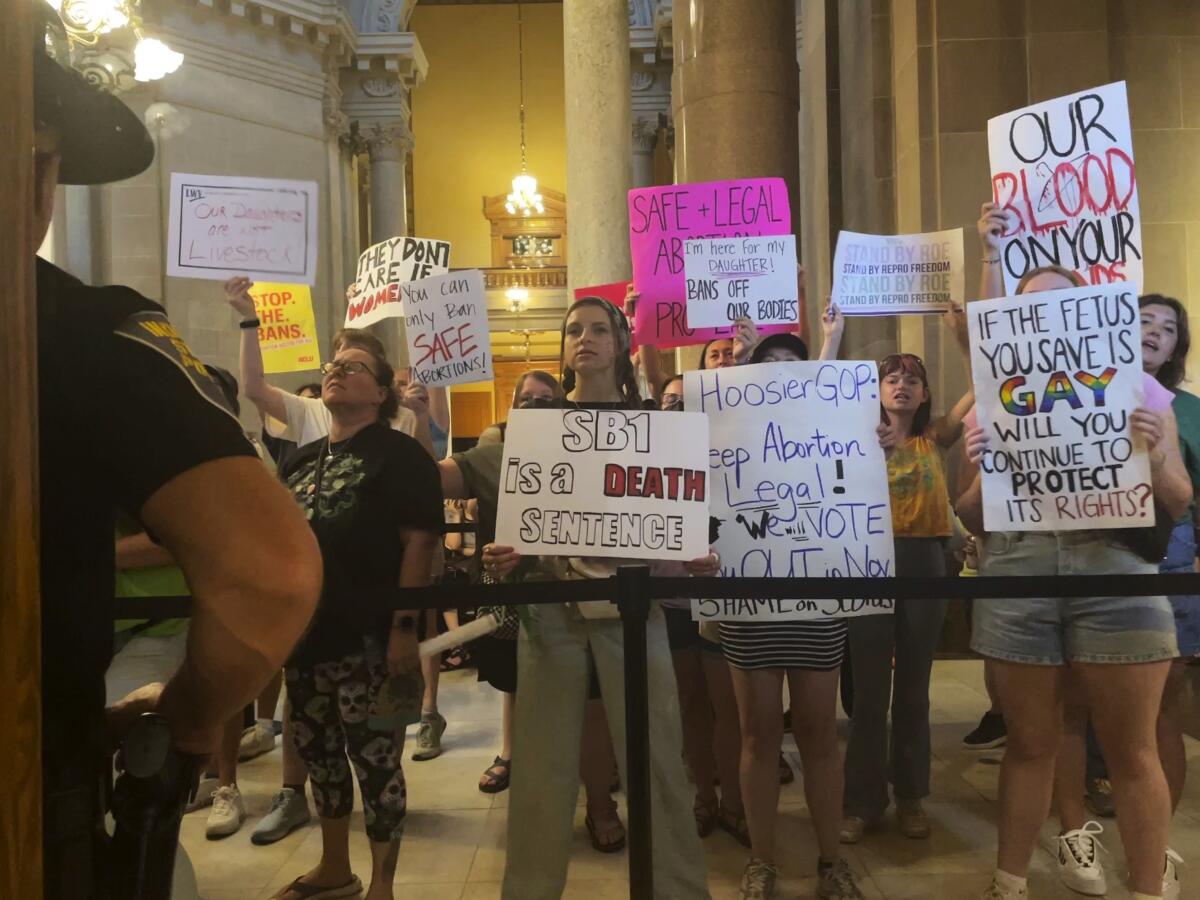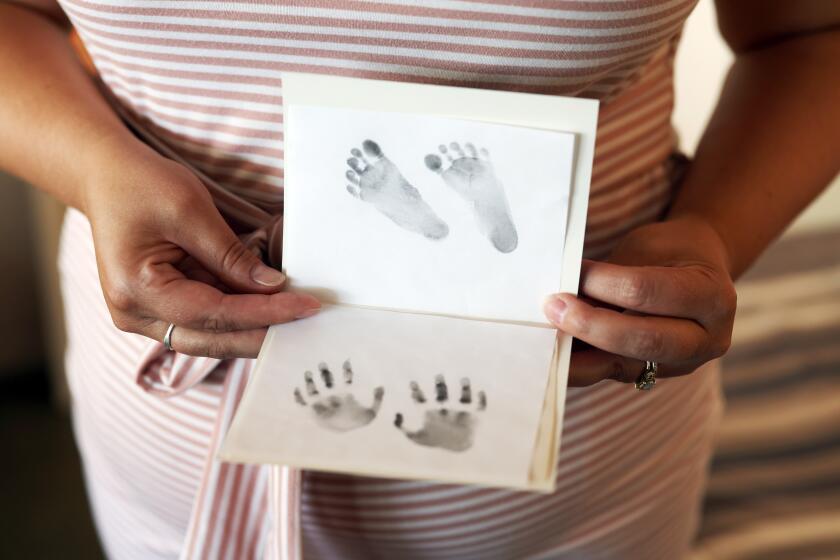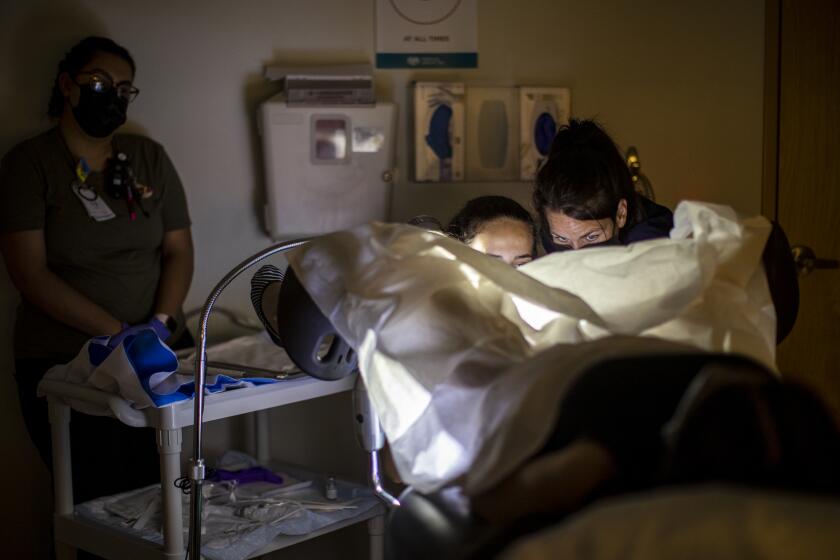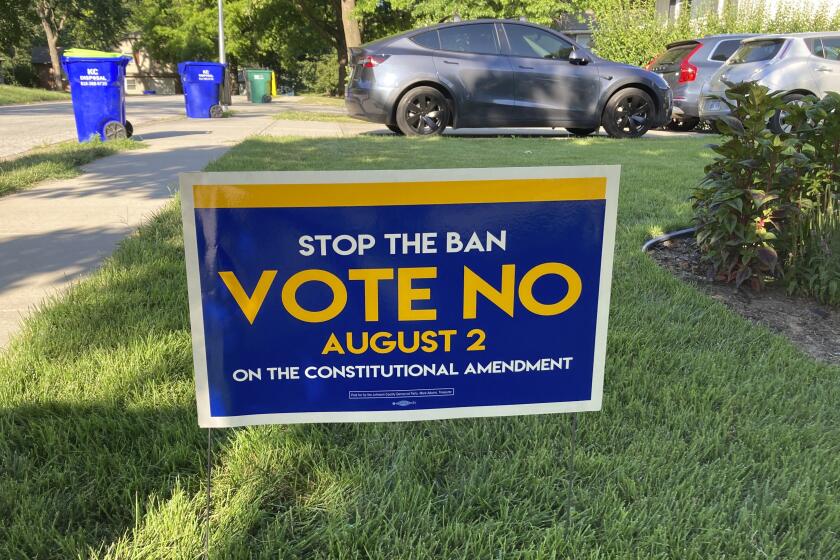Indiana becomes first state to approve abortion ban post-Roe

INDIANAPOLIS — Indiana on Friday became the first state to approve abortion restrictions since the Supreme Court overturned Roe v. Wade, as the Republican governor quickly signed a near-total ban on the procedure shortly after lawmakers approved it.
The ban, which takes effect Sept. 15, includes some exceptions. Abortions would be permitted in cases of rape and incest, before 10 weeks post-fertilization; to protect the life and physical health of the mother; and if a fetus is diagnosed with a lethal anomaly. Victims of rape and incest would not be required to sign a notarized affidavit attesting to an attack, as had once been proposed.
Under the bill, abortions can be performed only in hospitals or outpatient centers owned by hospitals, meaning all abortion clinics would lose their licenses. A doctor who performs an illegal abortion or fails to file required reports must also lose their medical license — wording that tightens current Indiana law that says a doctor “may” lose their license.
“I am personally most proud of each Hoosier who came forward to courageously share their views in a debate that is unlikely to cease any time soon,” Gov. Eric Holcomb said in the statement announcing that he had signed the measure. “For my part as your governor, I will continue to keep an open ear.”
His approval came after the Senate approved the ban 28 to 19 and the House advanced it 62 to 38.
Indiana was among the earliest Republican-run state legislatures to debate tighter abortion laws after the Supreme Court ruling in June that removed constitutional protections for the procedure. But it is the first state to pass a ban through both chambers, after West Virginia lawmakers on July 29 passed up the chance to be that state.
California may be an abortion sanctuary, but some women have to leave the state for the procedure.
“Happy to be completed with this, one of the more challenging things that we’ve ever done as a state General Assembly, at least certainly while I’ve been here,” Senate President Pro-Tem Rodric Bray told reporters after the vote. “ I think this is a huge opportunity, and we’ll build on that as we go forward from here.”
Sen. Sue Glick of LaGrange, who sponsored the bill, said that she does not think “all states will come down at the same place” but that most Indiana residents support aspects of the bill.
Some senators in both parties lamented the bill’s provisions and the impact it would have on the state, including low-income women and the healthcare system. Eight Republicans joined all 11 Democrats in voting against the bill, though their reasons to thwart the measure were mixed.
“We are backsliding on democracy,” said Democratic Sen. Jean Breaux of Indianapolis, who wore a green ribbon Friday signifying support for abortion rights, on her lapel. “What other freedoms, what other liberties are on the chopping block, waiting to be stripped away?”
Republican Sen. Mike Bohacek of Michiana Shores spoke about his 21-year-old-daughter, who has Down syndrome. Bohacek voted against the bill, saying it does not have adequate protections for women with disabilities who are raped.
The abortion bans that have swept the country all include an exception when a pregnancy is life-threatening. But that’s often a judgment call.
“If she lost her favorite stuffed animal, she’d be inconsolable. Imagine making her carry a child to term,” he said before he started to choke up, then threw his notes on his seat and exited the chamber.
Republican Sen. Mike Young of Indianapolis, however, said the bill’s enforcement provisions against doctors are not stringent enough.
Such debates demonstrated Indiana residents’ own divisions on the issue, displayed in hours of testimony lawmakers heard over the last two weeks. Residents rarely, if ever, expressed support for the the legislation in their testimony, as abortion rights supporters said the bill goes too far while antiabortion activists expressed it doesn’t go far enough.
The debates came amid an evolving landscape of abortion politics across the country as Republicans face some party divisions and Democrats see a possible election-year boost.
Republican Rep. Wendy McNamara of Evansville, who sponsored the House bill, told reporters after the House vote that the legislation “makes Indiana one of the most pro-life states in the nation.”
A backlash against the Supreme Court could create a breakwater against a Republican red wave in November.
Outside the chambers, abortion rights activists often chanted over lawmakers’ remarks, carrying signs like “Roe roe roe your vote” and “Build this wall” between church and state. Some House Democrats wore blazers over pink “Bans Off Our Bodies” T-shirts.
Indiana’s ban followed the political firestorm over a 10-year-old rape victim who traveled to the state from neighboring Ohio to end her pregnancy. The case gained attention when an Indianapolis doctor said the child came to Indiana because of Ohio’s “fetal heartbeat” ban.
Religion was a persistent theme during legislative debates, both in residents’ testimony and lawmakers’ comments.
In advocating against the House bill, Rep. Ann Vermilion condemned fellow Republicans who have called women “murderers” for getting an abortion.
“I think that the Lord’s promise is for grace and kindness,” she said. “He would not be jumping to condemn these women.”
More to Read
Sign up for Essential California
The most important California stories and recommendations in your inbox every morning.
You may occasionally receive promotional content from the Los Angeles Times.













